| Revista Umělec 2002/4 >> Wonderland | Lista de todas las ediciones | ||||||||||||
|
|||||||||||||
WonderlandRevista Umělec 2002/401.04.2002 Jana Kalinová | news | en cs |
|||||||||||||
|
The project Wunderland offers mines an alternative to disappearing mineral resources. Art is an amalgam that can fill in the worm holes in the earth, as well as the cultural atmosphere of society, whose existence was based on the mining of minerals. The curators are Ulf Robe, David Waliker and Jiří Surůvka, who are also participating as artists. Other exhibitors include Asa Andersson Broms, Peter Johansson, Michal Kalhous, Jana Kalinová, Lenka Klodová, František Kowolovský, Petr Lysáček, Eva Marklund, Patrick Nilsson, Annelie Walli and Martin Zet.
The exhibition will have two parts. The Swedish part, which took place between February 15 and March 16 in Kiruna a few kilometers above the polar circle, and the Czech part, which during the writing of this article was in a state of preparation, has been designated for the Landek mine in Ostrava, with the opening planned for July 5th. Both groups flew to the locations of the exhibitions several months before their launch. When the official at the entry passport control to Sweden asked Lenka why in God’s name she would want to go to Kiruna, it was something like a barmaid warning a traveler from going to that castle in Transylvania. Now with some distance from our polar experience, I wonder what kind of astonishment and horror it would take to bring a Czech passport official to hint to the Swedes going to Ostrava what was in store for them. As Jiří Surůvka describes in his letter, the word “tunnel” can be used in some places in our Republic in its original and figurative senses of the word. The growing number of signs of succumbing to the magic of local exoticism, drove one of us to the edge of criminality. In the same way the body stores fatty resources in expectation of starvation, our accustomed Czech bodies, in fear of unavoidable abstinence, stored up the normally easily digestible remains of the alcohol we had. That morning, after František returned from his jail cell, we were even afraid of rum-filled candy, and it was enough to imagine what would happen if the Swedish police got hold of Lysáček’s video recording of our performance to go slightly faint in the limbs. The camera saw things in this way: František was trying to jump up on its front but was not have much success. His head appears and again disappears at regular intervals from the picture. When he finally jumped up on the roof of the car and it bent under him, a man with a telephone came and wanted an apology, money and justice. We couldn’t lose everything, so we ran. But someone came back and tried to negotiate our way out of it. That delayed the whole group so much that just before the gates to our hotel the police surrounded us and took František away. He was lucky that the detective knew only about ice-hockey, Pilzner and Staropramen, whose ads in prohibitional Stockholm were impossible to overlook. So František only had to pay fourteen hundred for crushing the roof and we were only left wondering when the story would make us famous. But we were still at the beginning of our stay. The next day we left for Kiruna and when we came back after ten days almost nobody remembered the story. Most of our time in Kiruna we spent in the mine. From the window of our house at night it looked like a four-story cake, warning of low flying airplanes with its fence of halogen candles. When I saw it for the first time, I wondered whether we as artists could do anything better than that. The closer the deadline of the opening came, the later we would come back from the mines. The last three days Lörs would pick us up in his mini-bus at ten in the morning and at ten at night he would drive us back out. After a night in the mines then came a night again and we only came to the surface during daylight when something was needed in the town. On those occasions Lörs was the best company. Whenever he appeared in his LKAB work uniform, everything went much faster and cheaper and sometimes even for free. And we were explorers. A mobile phone and other achievements were on the floor of the space devoted to the exhibition. Nevertheless we were warned that if we wander off further than we were allowed, we may get lost in the silent lightless zone, in a labyrinth of 400 km of underground roads where no one would find us soon enough. So when Lenka decided, just like that, to set off on a trip with only a flashlight, she could rightly expect a bit of excitement. She returned disappointed when in total darkness after about a one’s hours journey to a lower floor she was passed by a Coca-Cola delivery truck. In the meantime, on one side of the mine, Martin was finishing a painting of a Thai sign for Buddha, partially covered by debris. A really surprising discovery was to find out that Vítkovické železárny (Vitkovice Steel) once owned a mine in Kiruna during the first republic (first independent Czech Republic). Then I understood that the connection between Kiruna and Ostrava lies much deeper than the organizers of the exhibition had even imagined. The strength of this connection Lenka then documented in her porno blasphemy. Why is it difficult to organize international projects in Ostrava. Like Alice in Wonderland, or maybe like being in a realm of nightmares, that’s probably how the Swedish organizers of the Swedish-Czech exhibition project Wunderland felt. Of course this concerns the money: the Swedes were supposed to cover 90 percent and we 10 percent (about 200,000 Kč). Unfortunately our 10 percent was only virtual. Last year the Ministry of culture, foreign department allocated 60,000 Kč to the project under the condition that 50% coparticipation of other subjects: the money has to go through the bookkeeping of the organizer, which would be in 2002 the civic organization K.O.K. in Ostrava. Unfortunately the grant committee of the municipality as usual did not allocate anything and we had to give the money back to the ministry. The Swedes paid for our airplane tickets, return tickets for the train Stockholm-Kiruna, accommodation, food allowance and pocket money for a week for 7 people (about 200,000 Kč). Well, and we in return brought only the infectious diarrhea and stomach sickness that was troubling Prague at that time. During the journey, we made everyone sick because we all drank from the same bottle of Vodka (Absolut). Long live the friendship! And because we were not insured, the Swedes could not leave us — luckily for us — in isolation at the infection department. The budget of Gallery Enkehuset could not cover that. Well, and in the year 2003? Project go on like last year. We got a grant from the Ministry of Culture and we did not get a grant from the Municipality of the town of Ostrava. The Swedes once again paid our long journey to Kiruna: this time to make it cheaper, by train to Gdansk, ship to Stockholm and by plane to Kiruna. Every artist received 10,000 Kč pocket money plus perdiems. The Swedes of course cover both journeys to the Czech Republic themselves. The municipality of the town of Ostrava prepared the accommodation for them for free. Hurrah! At least something. Unfortunately, the hostel under the stand of the hockey stadium is on the opposite end of the town and the artists from Sweden were driving every day for an hour to get to the place from their home. I think that this taught them a lesson. If the mayor of the Town of Ostrava, Little Zedník, comes for the opening (he’s the one who does not hang out the flag of Tibet and opposing the day of solidarity with Tibet he cooks wok noodles for the Chinese ambassador) and boasts to the Swedish ambassador, then we will lock him in the gallery and I will read to him out loud everything that will be necessary to do for the visual arts in Ostrava, so that it became compatible with the EU. Here it is: 1. Create a concept of support for visual art in Ostrava, 2. Create a Town Gallery (Kunsthalle) with a budget of several million, art council, so that it could also be a dignified partner to such international projects 3. Support for young artists, sufficiently effective so that graduates from the department of visual arts at Ostrava University will not leave town, i.e. rent of cheap ateliers (there are plenty of former factories or mines), scholarships for art students and year-long creative scholarships for artists 4. Create a prize or art competition for artists 5. If there is state money allocated for culture (for example grants or commissions) there have to be experts in committees and not the fellow-travelers appointed by political parties. 6. Buy art works for collections and as decoration for the town offices. And this is only the beginning! And we will not free Zedník until it becomes clear to him that the present situation is an Ostrava-Tibet genocide of the visual arts… Jiří Surůvka
01.04.2002
Artículos recomendados
|
|||||||||||||
|
04.02.2020 10:17
Letošní 50. ročník Art Basel přilákal celkem 93 000 návštěvníků a sběratelů z 80 zemí světa. 290 prémiových galerií představilo umělecká díla od počátku 20. století až po současnost. Hlavní sektor přehlídky, tradičně v prvním patře výstavního prostoru, představil 232 předních galerií z celého světa nabízející umění nejvyšší kvality. Veletrh ukázal vzestupný trend prodeje prostřednictvím galerií jak soukromým sbírkám, tak i institucím. Kromě hlavního veletrhu stály za návštěvu i ty přidružené: Volta, Liste a Photo Basel, k tomu doprovodné programy a výstavy v místních institucích, které kvalitou daleko přesahují hranice města tj. Kunsthalle Basel, Kunstmuseum, Tinguely muzeum nebo Fondation Beyeler.
|








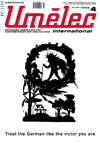


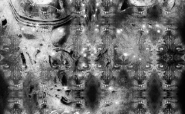
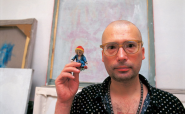
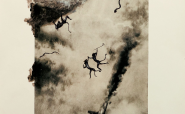
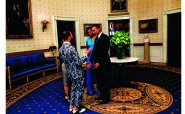







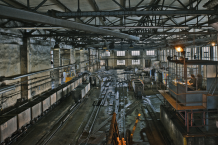




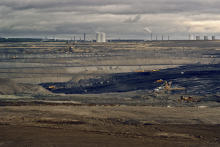
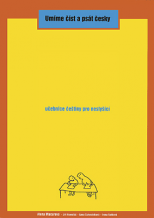
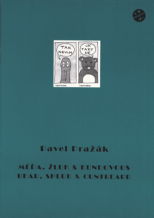
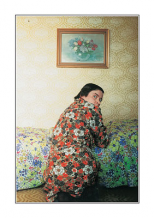


 New book by I.M.Jirous in English at our online bookshop.
New book by I.M.Jirous in English at our online bookshop.
Comentarios
Actualmente no hay comentariosAgregar nuevo comentario